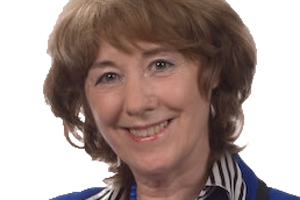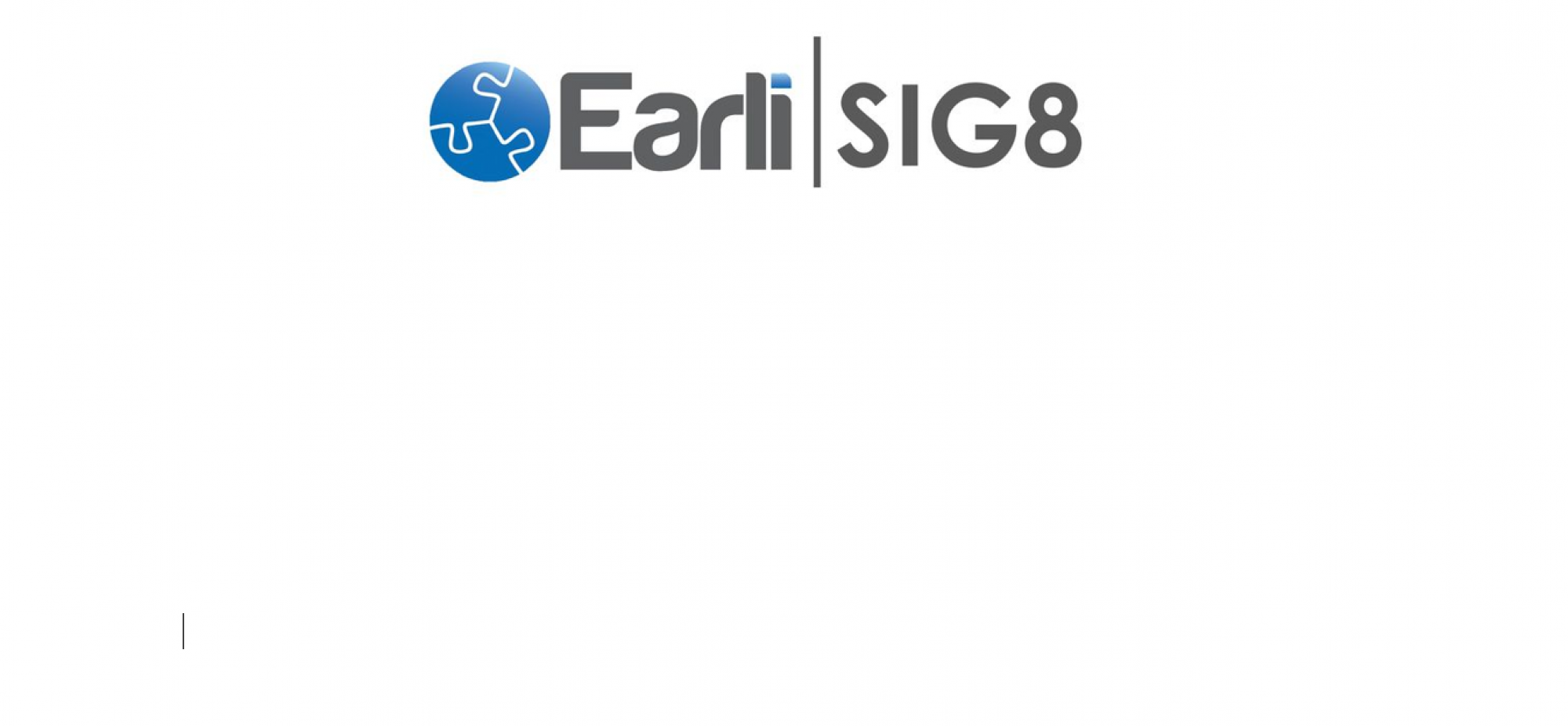Dr. Monique Boekaerts is an international pioneer and highly recognized researcher in educational psychology. Her ideas about motivation and self-regulation have transformed how learning and teaching are approached around the world. Dr. Boekaerts was born in Belgium, studied psychology at the University of Reading in the United Kingdom, and obtained her PhD at Tilburg University. She was a full professor at the Radboud-Universität Nijmegen and at Leiden University.

One of the most prominent contributions of Dr. Boekaerts is her “Dual Processing Self-regulation Model” that has generated extensive empirical studies and describes the dynamic aspects of self-regulated learning and includes motivation, emotion, metacognition, self-concept, and learning. Her publications include numerous peer-reviewed empirical and theoretical articles in top-level international peer-refereed journals and books. Well-known books of hers include the Handbook of Self-Regulation (2000) and Motivation to Learn (2002), which have been translated into Chinese, Dutch, German, Spanish, and Greek. Dr. Boekaerts is a founding member of the European Association for Research on Learning and Instruction (EARLI) and served as EARLI president from 1999–2001, as well as the president of the Division of Educational, Instructional, and School Psychology of the International Association of Applied Psychology (IAAP, 1998–2002).
In light of these achievements, Dr. Boekarts received the EARLI SIG8 Lifetime Award in 2010, and was afterwards also awarded with the 2015 EARLI Oeuvre Award. To learn more about her career, motivations, and research, we asked her several questions. Her answers are based on excerpts from an interview with Héfer Bembenutty in his book “Contemporary Pioneers in Teaching and Learning” (Bembenutty, 2015, pp. 75–87). For the full text, please see: https://www.infoagepub.com/products/Contemporary-Pioneers-in-Teaching-and-Learning
Personal career/ Your own motivations
Why did you decide to quit being a teacher and start a research career?
When I was 18, I ranked top of my class and parents were quite proud but they did not want me to go to university, because in their opinion that was not for girls and anyway it cost a lot of money. Instead, I enrolled in teacher training college. I was certified as a (foreign) language teacher (English, German, and Dutch) and taught for two years. I first taught students with special educational needs. I think that my philosophy of teaching took shape in that period. I discovered that the “power of learning” resides in all students but that it needs to be triggered time and time again. I also learned the hard way that you need to create a learning environment based on trust, where students can experience that their actions lead to success and that they are supported by a competent, reliable, and caring teacher.
After six months teaching these children, I got a job as a language teacher in a regular school and afterward, I got a job as a foreign language teacher at the Catholic University of Leuven. While working at the university, I became interested in psychology. I decided to go to England and applied for a job. I immediately obtained a job, which qualified me to register as a UK student. After taking an entrance examination at Reading University, I was offered the opportunity to study psychology. I finished my psychology degree in 2 years. Next, I applied for a junior teaching position at the Teacher Training Department at Antwerp University and started there in 1974. I was working in a teacher-training department and needed to make myself familiar with Educational Psychology.
After three years, my Ph.D. was ready but to my surprise, I could not defend it in Belgium because they did not accept my UK bachelor degree. I found a promoter in the Netherlands who was willing to defend my case. Afterward, I applied for the job as a full professor in Educational Psychology at Nijmegen University. I was never a junior professor: I went from being a Ph.D. student to being a full professor. This is not such a good starting position because you do not have a good role model and you cannot learn from your mistakes.
Research in your field
Can you please describe your Dual Processing Self-regulation Model? What are the differences between your model and other SR models?
The Dual Processing Self-regulation Model describes self-regulation as a set of dynamic, interacting regulation processes. The model describes how students, who are confronted with a learning task, form a fast mental representation of the situation (appraisal). They will start a learning activity in a mindful mode, when their appraisal of the learning situation is such that the learning task is congruent with their personal goals, needs, and aspirations. Such a match elicits a feel-good state, characterized by trust, confidence, being interested in the task, and wanting to expand one’s competence. These positive cognitions and emotions about the learning situation encourage students to form a commitment to the task and move onto the learning or mastery pathway. This pathway refers to activation of cognitive and motivation strategies that ensure the expansion of knowledge and competence. If the learning situation is initially appraised as threatening to well-being – either because the task is perceived as tedious, difficult, ambiguous, or complex, or because the students do not perceive enough decision latitude or support – negative cognitions and emotions are triggered (e.g., anxiety, irritation, disappointment). This negative feeling state initiates activities into the well-being pathway straight away, which refers to strategies that protect students from threat, harm, or loss (e.g., avoidance, denial, giving up, distraction).
To my knowledge, my model of self-regulated learning was the first model that describes the dynamic, non-stop appraisals that assign meaning to the learning activity itself. What is more, my Dual Processing Self-regulation Model explains how these non-stop appraisals dynamically shift the focus of the self-regulation system to any of three purposes of self-regulation, namely: (1) expanding knowledge and skills (i.e., activities in the mastery pathway with a focus on the task), (2) preventing threat to the self and loss of resources so that one’s well-being is kept within reasonable bounds (i.e., activities in the well-being pathway with a focus on the self), and (3) protecting one’s commitments by using activities that re-route attention from the well-being pathway to the mastery pathway (i.e., from a focus on the self to a focus on the task).
What are your next goals regarding your research?
I am currently involved in training parents and grandparents in recognizing approach and avoidance goals in their (grand) children. I found that (grand) parents, who are knowledgeable about how motivation and emotion work, are better equipped to assist them in regulating their motivation and emotion in relation to schoolwork.
In your opinion, what will be the most important questions to answer concerning self-regulation in the future?
Up to now, researchers have not devoted much research attention to meta-motivational and meta-interpersonal knowledge. Yet, it is essential to describe the different types of conditional knowledge that students must accrue to steer and direct the different types of self-regulation strategies. Likewise, little research is available on the use of the motivation, volition, and emotion regulation strategies that students successfully use in the classroom.
About the award
What does being a part of the EARLI mean to you and what are your most memorable experiences, when you think about EARLI?
I had been one of the founding members of the association and I had seen how the organization had grown from a small family to an extended family with many young researchers. In the Netherlands, there were plenty of opportunities for young researchers to be initiated into the field but that was not the case in other European countries. I wanted to help these young researchers. To this end, I met several times with my own Ph.D. students and several young Dutch and Flemish researchers to draft a blueprint for an association of young researchers within the EARLI. I really enjoyed doing that, and I am proud to say that during my presidency the JURE was founded and is still a flourishing association within EARLI. During my career, I organized and took part in several summer schools for young researchers, and I consider working with these bright and enthusiastic young people as a real treat.
One of my most memorable experiences I had was becoming the president of EARLI and I was proud to become the president of this important organization.
Advice
Could you give us some valuable suggestions for future researchers?
Read the relevant literature thoroughly and use validated instruments rather than constructing new ones yourself. Don’t spend time re-inventing the wheel: build on the shoulders of senior researchers. It is better to be a well-equipped wagon pulled by a well-oiled engine than to try and be an engine too soon.
Also, if it is your ambition to advise and train teachers to change the classroom, it is necessary that you first train to be a teacher yourself so that you find out firsthand what is happening in the classroom. You will see that teachers will immediately identify you as somebody who is familiar with the teaching profession and with the complex world of the classroom. As such, they will communicate better with you, trust your opinion, and implement your findings.
I have often communicated to young researchers that organizing the social program of a conference well is just as important as organizing the scientific program well. I truly cared about the education of the next generation and I wish all young researchers an interesting and stimulating career as I had myself.
Martin Daumiller & Julia Morinaj
References
Bembenutty, H. (2015). Contemporary pioneers in teaching and learning. IAP.
Boekaerts, M. (2002). Motivation to learn. International Academy of Education.
Boekaerts, M., Zeidner, M., & Pintrich, P. R. (Eds.). (1999). Handbook of self-regulation. Elsevier.
